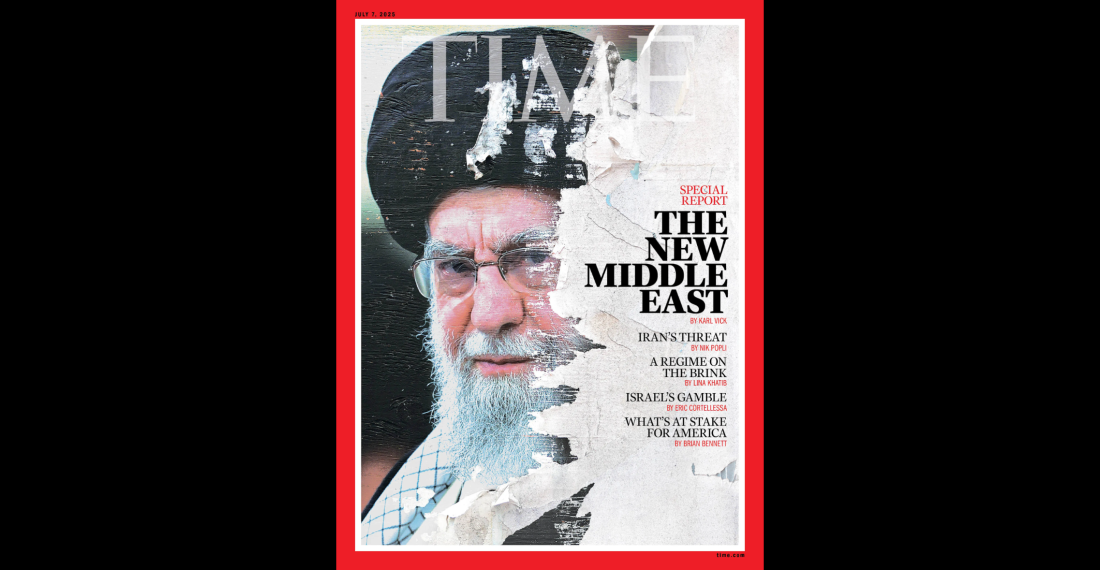Last month, TIME magazine ran a cover story entitled “A New Middle East Is Unfolding before our eyes”.
“The middle of what? East of where?”, asks Tim Marshall in his seminal book ‘Prisoners of Geography’, before quickly reminding us that “The Middle East is one of those places where the past is now”.
Indeed, many issues that dominate the region today have roots going back centuries. When the British arrived in the 19th century they were content in keeping things quiet, as long as they had the final say. When they left for rather unceremoniously in 1967, after a heroic but very clumsy last stand in Aden, they were replaced by the Americans, who had a very different approach. The Americans say they want to leave, but in truth, they are sucked into the region more than ever.
The Middle East is the home of the Arabs. Yet in modern times the Arabs are increasingly sandwiched between Iran and Israel, with Islamism bubbling under them. This situation has now persisted for decades, but will not last forever. Radical political Islam has probably peaked, and its more respectable face, the Muslim Brotherhood, tried both the gun and the ballot box. It is now on the defence, and the retreat in several countries. It is not clear what will replace it.
So is there a “new” Middle East? Not yet!
Fragmented Arab World
There are twenty-two countries in the Arab League. Many of them are artificial creations created by Europeans, mainly British and French colonialists. In at least five the central government does not control the whole country: Sudan, Libya, Somalia, Yemen, Syria, Lebanon
Palestine is a good example of Arab weakness and incompetence
For more than seventy years the Arabs could not agree on the modalities and mechanics of creating a credible Palestinian state. There was no shortage of rhetoric, and half-cooked ideas like the “Boycott Office”, but these were never effective and only served to make officials look busy. The June 1967 six-day war was the last time the Arabs tried to solve the Palestinian question by military means. It ended up being a disaster for Egypt, Jordan, and Syria.
However, it is the war in Gaza over the last two years that has laid bare the incompetence and weakness of the Arabs. The genocide done by the Israelis in Gaza laid bare the weakness of the Arab states, their leaders, and their failure and inability to stop it. The Arabs cannot be insulated from the daily horrific scenes on the media and social media. There is disquiet among the Arab public. This will have consequences, sooner or later.
The rift between the Arabs and the Persians goes back to the time of the Prophet. Shortly after the Prophet died Islam split into two, most Arabs are Sunni, most Persians are Shia. The current argument about Iran’s nuclear file is simply the latest iteration. The past is now.
Arab nationalism
At its peak in the 1950s and early 1960s Arab nationalism seemed unstoppable. But it depended only on one man, and his oratory – Gamal Abdel Nasser. Nasser was a great orator and he used to mesmerise the crowds. The British monitored his speeches, and the broadcasts of the Egyptian radio station ‘’Saut el Arab” religiously, as if these were broadcast from heaven–or hell.
But when Nasser tried to put his rhetoric into practice he failed miserably: for example, the attempt at unification with Syria, the intervention in Yemen, and of course, the six-day war with Israel.
There were attempts to emulate Nasser. The Baathist regimes in Syria and Iraq are a case in point, but they were more focused on regime survival. In his early days as Libyan leader, Muammar Gaddafi, also embraced Arab nationalism. But by the end of his rule, Libya was more focused on Africa.
Arab nationalism died with Nasser in 1970. It has never been properly replaced: American hegemony and blunders, political Islam, filled the gap for a while, but never convincingly.
New kid on the block
The modern state of Israel was created in 1947. Up to 1967, it had to fight for its existence. Now it is the only state in the Middle East that has nuclear weapons. It also has a strong and efficient armed forces. It can rely on the United States for support.
But in Gaza over the last two years, Israel has changed. And the perception of Israel in the world has changed.
Iran
Iran is licking its wounds following the US and Israeli bombardment. But Iran is not going to disappear, nor will the Islamic Revolution. Decapitating the political and military leadership, as Israel has tried to do, has limited value. New people move in, and in some cases bring in new energy and blood. Palestine is an important tenet of the Iranian revolution. But make no mistake about it, the first task of the revolution is to protect itself.
Have Israel and Iran overplayed their hands?
It is possible that both Israel and Iran, in different ways, overplayed their hands. Others, such as Turkiye, will increasingly challenge their hegemony.
To talk of a new Middle East, as Time Magazine did last week, is premature, possibly even folly.
The litmus test will be the creation of a viable Palestinian state, recognised by all neighbours, including Israel. Only then can we talk of a new Middle East.
Source: Dr Dennis Sammut is the Director of LINKS Europe and Managing Editor of commonspace.eu.
The views expressed in opinion pieces and commentaries do not necessarily reflect the position of commonspace.eu or its partners.






